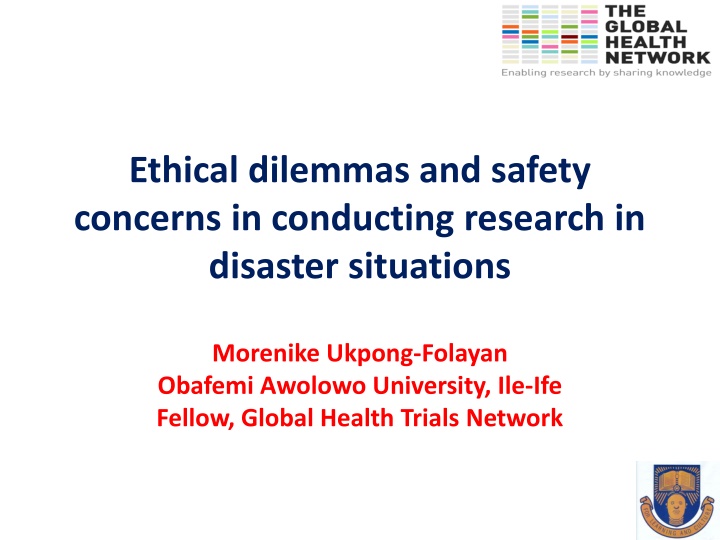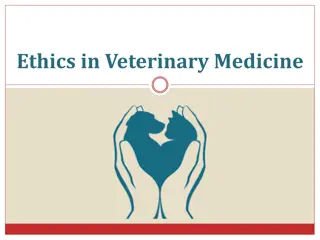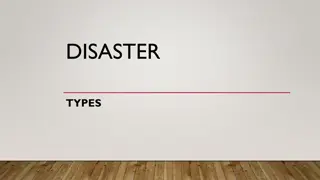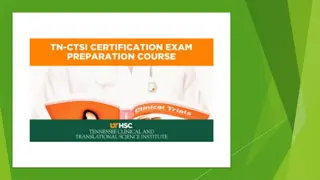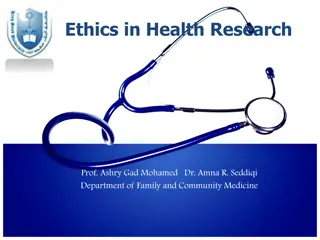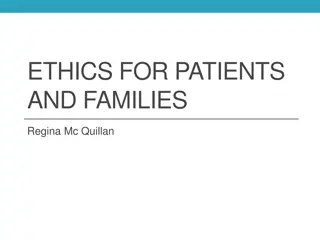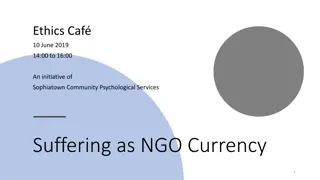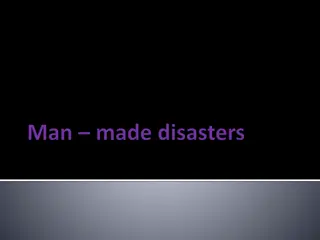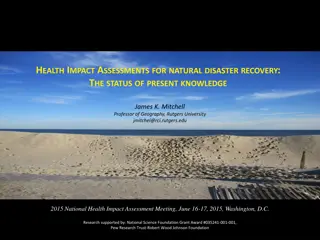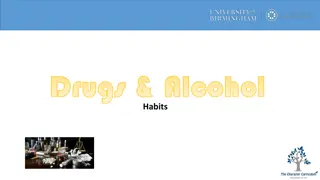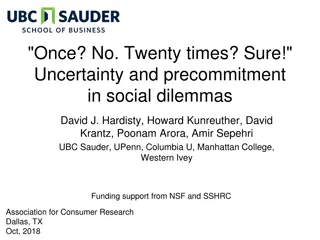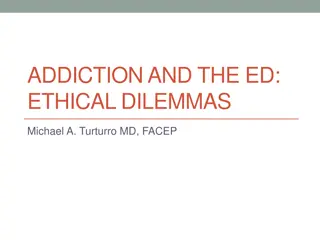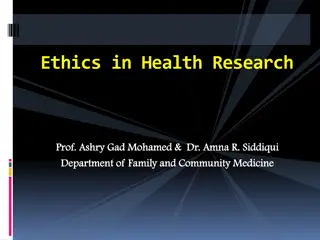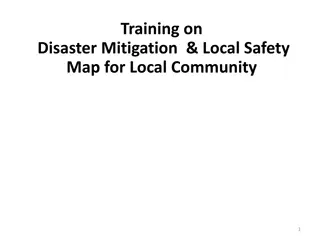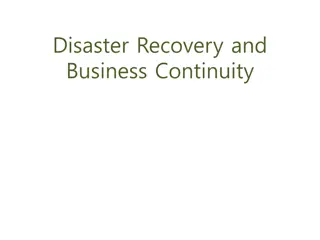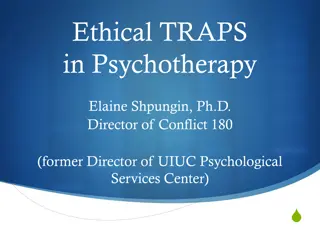Ethical Dilemmas and Safety Concerns in Research during Health Disasters
Ethical dilemmas and safety concerns arise when conducting research in disaster situations like Ebola, Zika, H1N1, and SARS outbreaks. Lessons learnt include the need for global guidelines, involving local communities, and aligning research with cultural norms and practices.
Download Presentation

Please find below an Image/Link to download the presentation.
The content on the website is provided AS IS for your information and personal use only. It may not be sold, licensed, or shared on other websites without obtaining consent from the author.If you encounter any issues during the download, it is possible that the publisher has removed the file from their server.
You are allowed to download the files provided on this website for personal or commercial use, subject to the condition that they are used lawfully. All files are the property of their respective owners.
The content on the website is provided AS IS for your information and personal use only. It may not be sold, licensed, or shared on other websites without obtaining consent from the author.
E N D
Presentation Transcript
Ethical dilemmas and safety concerns in conducting research in disaster situations Morenike Ukpong-Folayan Obafemi Awolowo University, Ile-Ife Fellow, Global Health Trials Network
Outline Current health disaster situations Ethical dilemma and lessons learnt International guidelines on biomedical research conducted during disaster situations Applications for the local context Conclusion
CURRENT HEALTH DISASTER SITUATIONS
Zika Disease Image result for picture of a baby with zika Image result for picture of a baby with zika Image result for picture of a baby with zika
Severe Acute Respiratory Syndrome - SARS Image result for Pictures of severe Acute Respiratory Syndrome
ETHICAL DILEMMA AND LESSONS LEARNT
Lessons learnt Laws and programs on public health respons should recognise the need to conduct research during emergencies. Local epidemics receive global interest and attracts foreign researchers. Culture, norms and practices should inform the design of research design
INTERNATIONAL GUIDELINES ON BIOMEDICAL RESEARCH
Ethical guidelines - 1 Governments and the international community have obligations Ensure national public health laws that also addresses how to handle research conduct during emergencies. Institute mechanisms for protocol reviews during such emergencies.
Ethical guidelines - 2 Involve local communities in the design and implementation of the research Inclusiveness Be aware of vulnerabilities Be open to diverse perspectives Be transparent Be accountable
Ethical guidelines - 3 Allocation of scare resources Balance utility with equity Fulfill reciprocity based obligations Avoid corruption
Ethical guidelines - 4 Research design and implementation Involve local researchers Time sensitive ethics review Address barriers to consent Select appropriate methodology Rapid data sharing Equitable benefits to research outcomes
Ethical guidelines - 5 Emergency use of unproven interventions Guidelines on fair distribution in the face of scarce resources Minimise risk Collect and share meaningful data Engage community in decision making on product use
APPLICATIONS FOR THE LOCAL CONTEXT
Consideration for Nigeria Update of our public health laws to address consideration for research and use of unproven interventions during emergencies. Strengthen our public health surveillance and our health emergency response system. Local investment in research needs to improve IRB competency needs to improve
Be prepared Health emergencies result in large number of deaths. Emergency preparedness only reduces the severity. Does not eliminate. It is however important to be prepared. Recognising our limitation as a developing country and forming formidable forces in the region is critical.
Acknowledgement My colleagues with whom I have worked on defining ethical considerations for Ebola research Bridget Haire, Aminu Yakubu, Kris Peterson, Tegli Jamee, Brandon Brown. GTHN for the invite. Specially Dr Glory Ogunfowokan for for the support.
